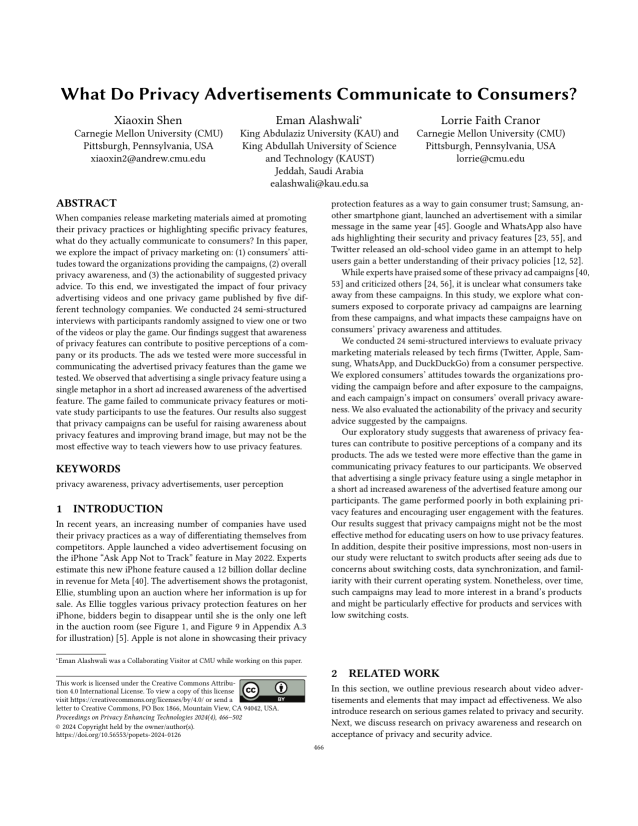What Do Privacy Advertisements Communicate to Consumers?
Authors: Xiaoxin Shen (Carnegie Mellon University), Eman Alashwali (King Abdulaziz University (KAU) and King Abdullah University of Science and Technology (KAUST)), Lorrie Cranor (Carnegie Mellon University)
Volume: 2024
Issue: 4
Pages: 466–502
DOI: https://doi.org/10.56553/popets-2024-0126
Abstract: When companies release marketing materials aimed at promoting their privacy practices or highlighting specific privacy features, what do they actually communicate to consumers? In this paper, we explore the impact of privacy marketing on: (1) consumers’ attitudes toward the organizations providing the campaigns, (2) overall privacy awareness, and (3) the actionability of suggested privacy advice. To this end, we investigated the impact of four privacy advertising videos and one privacy game published by five different technology companies. We conducted 24 semi-structured interviews with participants randomly assigned to view one or two of the videos or play the game. Our findings suggest that awareness of privacy features can contribute to positive perceptions of a company or its products. The ads we tested were more successful in communicating the advertised privacy features than the game we tested. We observed that advertising a single privacy feature using a single metaphor in a short ad increased awareness of the advertised feature. The game failed to communicate privacy features or motivate study participants to use the features. Our results also suggest that privacy campaigns can be useful for raising awareness about privacy features and improving brand image, but may not be the most effective way to teach viewers how to use privacy features.
Keywords: Privacy Awareness, Privacy Advertisements, User Perception
Copyright in PoPETs articles are held by their authors. This article is published under a Creative Commons Attribution 4.0 license.

